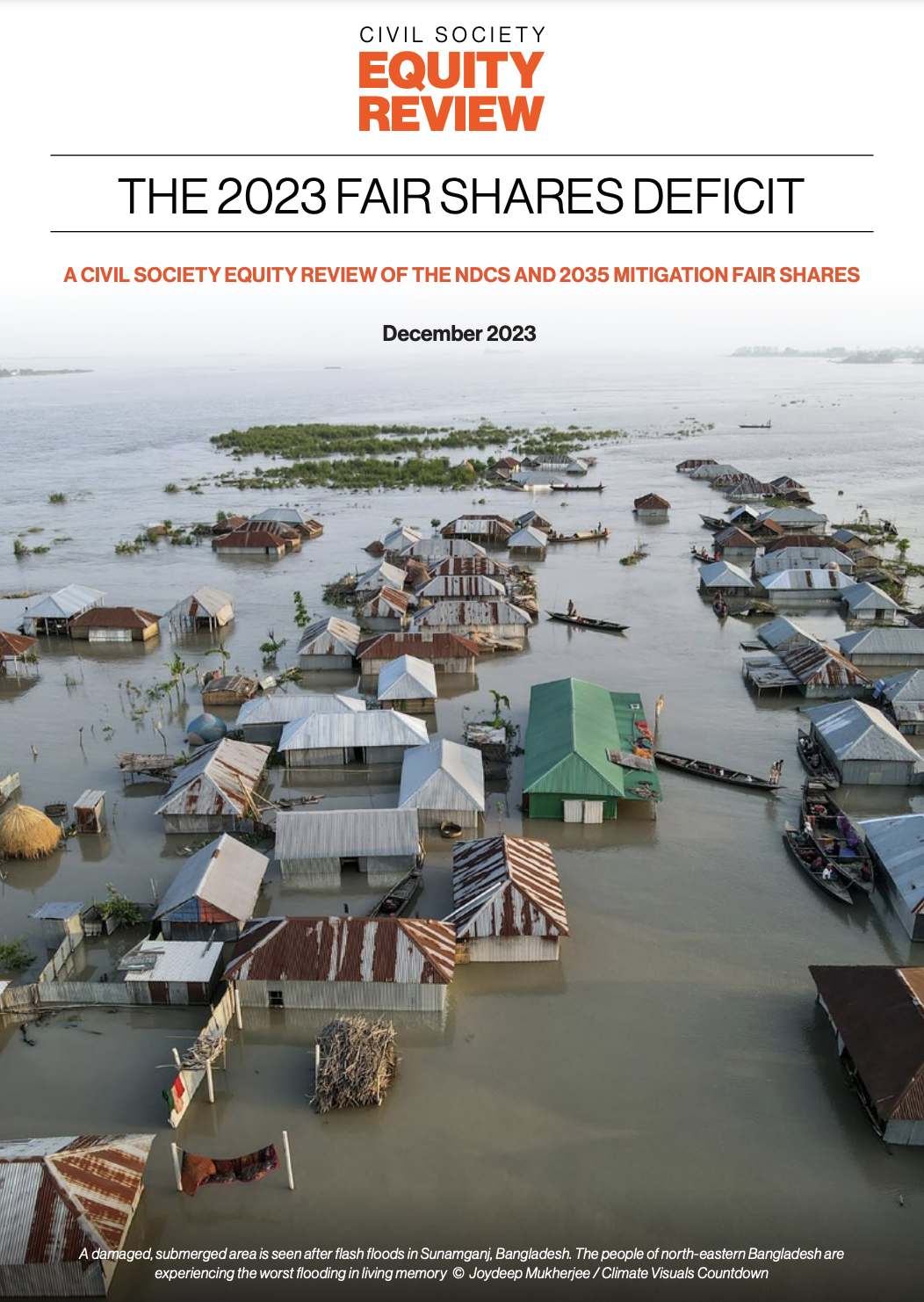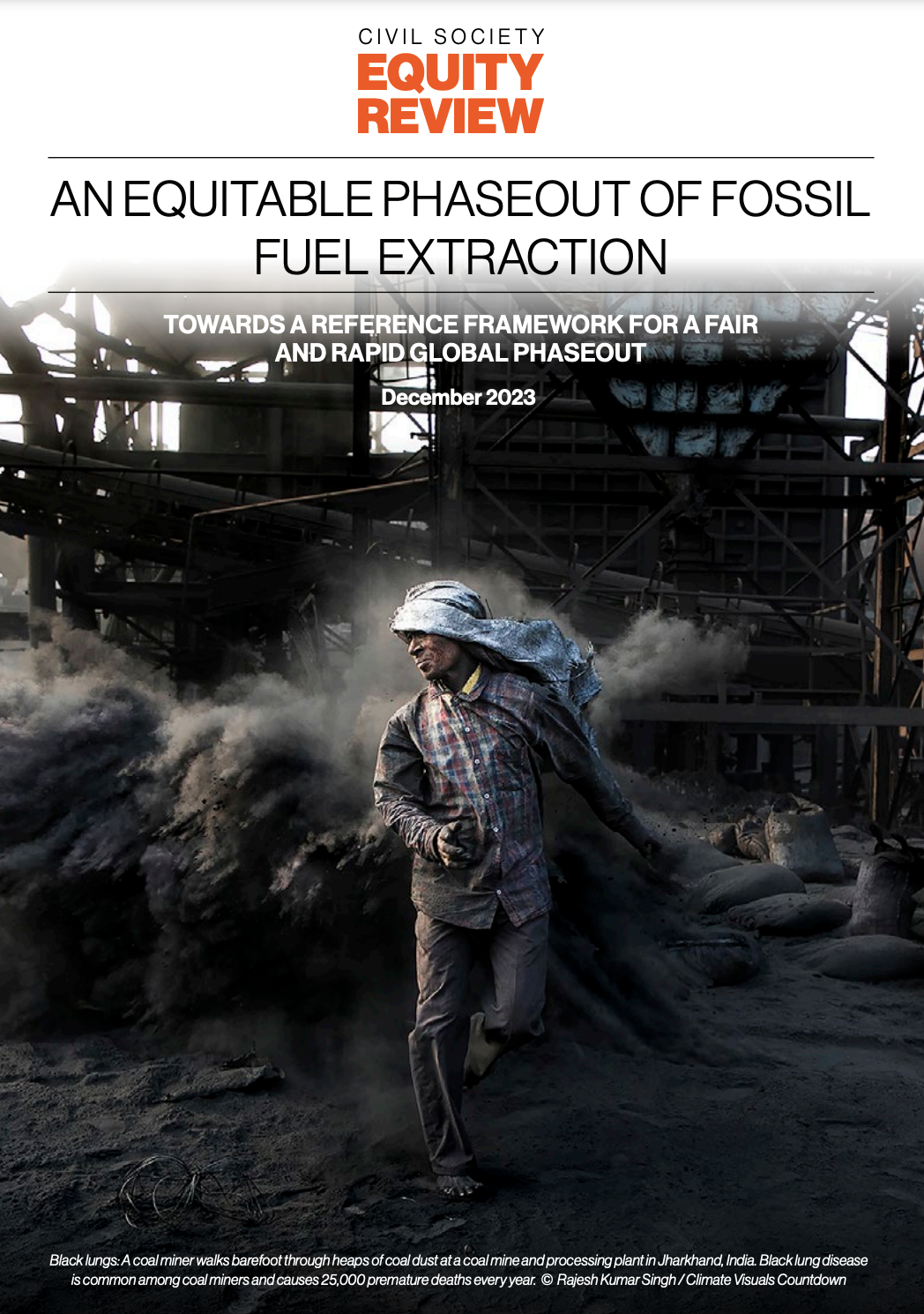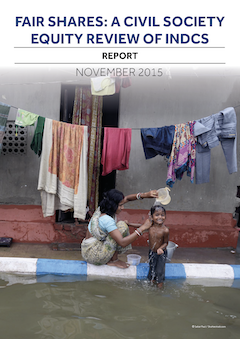Global equity analysis of how climate pledges stack up against the Paris Agreement goal of limiting warming to 1.5°C
Major report launched at COP28: An Equitable Phase Out of Fossil Fuel Extraction
A new report proposes science- and equity-based dates by which different countries should end coal, oil and gas extraction to limit warming to 1.5°C.
Key Findings include:
To have a decent chance of holding to the 1.5 °C limit, fossil fuel extraction must begin to decline immediately, phase down rapidly in the coming decades, and cease worldwide by 2050.”
“There is no room for new oil and gas fields or coal mines to be opened anywhere in the world” and “All investment in the further build-out of fossil-fuel infrastructure must stop immediately.”
To leave enough carbon budget for more fossil fuel-dependent economies to transition, wealthy nations that are less dependent on fossil fuel extraction such as “the United States, Norway, Australia, and the UK, must end fossil fuel extraction by the very early 2030s.”
New report released at COP28
The 2023 Fair Shares Deficit
A Civil Society Equity Review of the NDCs and 2035 Mitigation Fair Shares
This report reevaluates the existing NDCs, including how a selection of countries’ current NDCs – since some have been updated since our last major update – stack up against their fair share.
Our fair share calculations are then also extended to 2035, giving fair-shares targets to consider as countries begin the process of developing the next round of NDCs.
Erratum: A previous version of the report had some errors in Table 2. Specifically, in the rows of the table that express 2035 fair share reduction in percentage terms, the numbers for 1850-High Progressivity and 1950-Medium Progressivity were swapped. Furthermore, for the USA, Australia and Brazil, both percentages reported were for the 1950-Medium Progressivity benchmark. These errors were corrected in the pdf on February 9, 2024. If you downloaded the report prior to this date, please re-download the corrected version above.
8 years of equity reviews
In the period leading up to the 2015 Paris climate summit, we came together to conduct a civil society equity review of the emissions reductions pledges that countries were putting on the table there; over 150 organizations endorsed our review. Since then we have released a series of major reports at each of the UN Climate Talks – analysing whether the climate commitments, finance pledges and fossil fuel phase out plans that Parties had promised are ambitious enough and tolerably fair.
Click on a report below to download.
2023 Report: The 2023 Fair Shares Deficit
A Civil Society Equity Review of the NDCs and 2035 Mitigation Fair Shares
2023 Report: An Equitable Phase Out Of Fossil Fuel Extraction
As the UN Climate Talks take place in Dubai, expectations are growing for governments to include a strong mention of a managed phase-out of coal and oil and gas – the substances that are most responsible for climate breakdown – in the formal COP28 outcome. A new report proposes science- and equity-based dates by which different countries should end coal, oil and gas extraction to limit warming to 1.5°C, and argues that substantial amounts of international support are needed to make this possible in poorer countries.
Who we are
As social movements, environmental and development NGOs, trade unions, faith and other civil society groups, we have come together to assess the climate commitments that have been put on the table through the UN climate negotiations.
We seek to identify which countries are offering to do their fair share, which need to do more, and present recommendations on how to close the emissions gap.
Are countries Doing their
Fair Share?
This video explains the assessment methodology that is used by the annual Civil Society Equity Reviews in our assessment of whether countries climate action pledges are consistent with their fair share of global climate action.
Join now
Use the form below to sign on to the Civil Society Equity Review as an organisation










